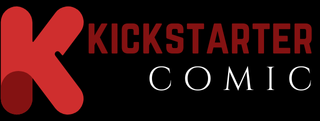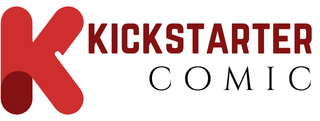Six days ago, Fieldmouse Press launched its GoFundMe campaign, “Help Mouse Press Stay Alive.” The emergency campaign cites the recent Trump administration’s “trade announcement.” For example, the tariff war between the US and China is currently raising tariffs on imports round-trip to 125%. For small press publishers, this “sudden, sudden, rapid increase in tariffs” means that the China-based printer has asked to pay an “additional 54% tariff” for the winter 2025 season.
The new tariffs do not appear to apply to the books, but the situation at Fieldmouse is less clear. “Our specific circumstances aren’t that clear,” writes Alex Hoffman, publisher of Fieldmouse Press, in an addendum to the GoFundMe campaign. “The printers we work in Shanghai, China, operate under the belief that tariffs are very well in place for now. Furthermore, this remains an overall unstable situation as further US tariffs and threats of global retaliation actions remain true potential.”
After receiving support from other small press publishers such as Glacier Bay Books and Silver Sprocket, Fieldmouse has stopped accepting GoFundMe donations. The publisher has “uncertainly” about whether money raised from the “until the boat with the book arrives” campaign in three to four weeks, so they have stopped taking donations and instead directed them to support Field Mouse by supporting the Winter Season 2025 crowdfunding campaign.
“If we agree that the printer should not collect any further customs duties, the addendum will continue.
Beat spoke with Fieldmouse Press’s Alex Hoffman about the industry’s disruptions about whether tariffs apply to books, how small press publishers are working together, and what they can do to support these companies during this period.
This interview has been edited for readability and length.
Ollie Kaplan: I think there is confusion about the current tariff situation. Could you please explain to our readers more about what’s going on with your Chinese printer? (Does China’s response to US tariffs affect this?)
Alex Hoffman: The tariff situation is extremely confusing for both US-based and China-based companies. As of 4/9/2025, the US had collected 125% tariffs on Chinese imports. Taking this at face value means that all products coming out of China face a 125% tax when they reach the US border. However, there are a few exemptions and this is a difficult place. Based on the data in Appendix II and Appendix III of the customs announcement, the book and material written as such appears to be exempt from customs duties. This could be due to Skittishness about what appears to limit freedom of the press and freedom of speech. That generally means that the book publishers are OK, but our printers didn’t believe there was a tariff exemption for the information they received from port intrusion agencies. They also wanted to cover the additional 34% tariff payments after paying 20% tariff fees on top of the original total cost.
The reason we launched GoFundMe is frankly because we had already paid for the entire winter season and were asked to pay an additional amount before, so there was no cash available. As a nonprofit, we made a conscious effort to avoid lending money to fund our operations. There was no cash on hand to process such payments. Under such pressure, it was the most reasonable option. I knew I could refund my pledge if I didn’t have to use the funds. Imports and exports are extremely complicated, and unless the publisher has a specific employee to handle this task, most imports are managed through port transfer agencies that operate on behalf of printers that coordinate shipments on behalf of the publisher. That is to say, Fieldmouse Press owns the book, is a business recorded with the cargo, and is technically imported, but does so with the help of an external business that contracts with printers that handle the logistics they introduce to distributors from China. So it takes a lot of hands to move books from printers to docks, boats, docks, warehouses
Kaplan: How can readers support small press and indie publishers now?
Hoffman: Readers can support small-scale press tactics by purchasing books already in stock and supporting crowdfunding efforts. FieldMouse Press is running a pre-order campaign on CrowdFundr, but we have a great backlist that people want to check out. When you buy books that are already in stock, small publishers will face these kinds of challenges and give them the capital they need to maintain the solvent.
Kaplan: You are in touch with CBLDF regarding your situation. Do you have any advice for others?
Hoffman: When we let out a cry of help, we had a lot of people coming to our aid. We also contacted all possible people, including CBLDF, CLMP (a community of literary magazines and press, an independent press and magazine nonprofit), and other publishers. This kind of answer answers questions 3 and 5, but in general, little press publishers of comics create books because they love and are passionate about art forms. It’s very difficult to make a profit from small books, but I think that’s an essential job, so we do it. FieldMouse Press is a three-person business, and we all volunteer our time. Bulgilhan Press is alone. Glacier Bay is alone. There’s only one stranger. Even the highly respected Koyama Press (RIP) were only two.
My advice is that if you are someone considering publishing a small media or a book and are having trouble understanding something or need help, please email me. Please email other publishers. Silver Sprocket’s Avi Ehrlich has given us so much direction and support over the last few years. Annie Koyama helped us design our rights agreement. I think we all believe that rising tides lift all the boats. Building that network and realizing that we can all have experience and help each other is a way for the industry to survive the harsh economic environment that may come over the next few years.
Kaplan: Could you tell me a little more about future books?
Hoffman: We are very excited to show off our latest book. Fieldmouse Press publishes the book in the title “Block” to help you integrate costs and shipping, so you organize the book into two major seasons: winter and summer. The winter season of 2025 has been known as the “Nihilism Field Mouse Festival.” Because many books tackle difficult topics such as addiction, abuse, suicidal ideation, and diet with disabilities. But these books are beautiful because they are difficult. We should not get too philosophical here, but human experience is primarily a combination of moments of great love and suffering. We work with artists who reveal human experiences through their suffering and show that life is still worth living, even in pain and trauma. Find out more about the book with CrowdFundr’s pre-order campaign here.
However, the general information is:
Talton, which softens bread blows, is the biggest book to date with a 380-page Smithsun paperback and is currently underway since 2021. The enthusiasm by Karl Antonowicz is our first book of landscapes. This is a full-color 172-page Smyth-Sewn hardcover. What length do you go for what you believe in? Sarah Jewel’s souvenir is a full-color, 84-page Smith Seung paperback. This is a mixed media sunburst of books. How can you accept who you are when you are stuck trying to stay in the past? Totality by Jeff Lok – The 124-page Smyth-Sewn paperback is a black and white paperback and an autobiography of its most raw form. What happens to people when everything they thought they believed about American dreams turns out to be a lie? The ambiguous Blu by Noah Schiatti is a perfect full-color 52-page paperback, initially released in Shortbox Comics Fair with a new adaptation. When your self-image is fraying at the edges, what do you do, and does no one seem to understand?
Kaplan: Many small press outlets seem worried about the economy. We also supported campaigns, like Glacier Bay (I recently posted about tariffs) and Silver Sprocket (also open about struggle). Do all publishers work to support each other? Can you let me walk through that ecosystem?
Hoffman: In addition to what I said above, I think the ecosystem is one of the loose mutual aid. We are all trying to make good books and make important art. And to some extent, we are all trying to make the same dollars. But I think the various publishers in the indie comic space have their own niches and unique interests. More importantly, there’s a kind of DIY/community spirit that guides us. It doesn’t necessarily publish some of the things Silver Sprocket publishes (for example), but I think that’s great. This means there is a variety of voices and storytelling that more people can experience.
Kaplan: Is there anything else you would like to add?
Hoffman: I’m really grateful for all the support I received last week. It’s very meaningful to see people fighting for us and watch for the press of the field mouse. This reminds us of the strength of this community. And there’s more to us – we’re planning a great summer season in 2025, with the book being released in time for SPX 2025, and some surprising releases too!
(Featured image: @FieldMousePress)
If you want to support FieldMouse Press, please pledge the CrowdFundR campaign by April 23, 2025 or purchase the digital edition from the previous season of the publisher. Plus, stay up to date with all the latest announcements from FieldMouse Press via LinkTree!
Like this:
Like loading…


